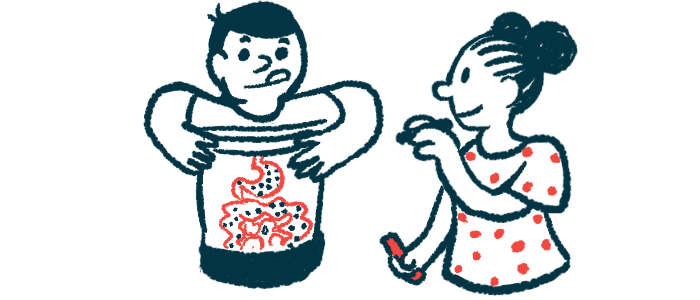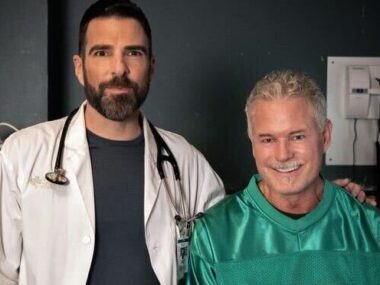Probiotic Prevents Neurodegeneration in ALS Worm Models
Clinical trial planned for the spring will enroll about 100 ALS patients
Written by |

The bacterial strain Lacticaseibacillus rhamnosus HA-114 prevents neurodegeneration and preserves motor function in worm models of amyotrophic lateral sclerosis (ALS), a new study reports.
This protective effect was linked to the fat molecules, called fatty acids, found in this strain, which helped restore fat metabolism in the mitochondria — organelles that provide most of the cellular energy and are abnormal in ALS.
“When we add it to the diet of our animal model, we notice that it suppresses the progression of motor neuron degeneration,” Alex Parker, PhD, the study’s lead author and principal investigator at the University of Montreal Hospital Center’s Research Center (CRCHUM), Canada, said in a university press release. “The particularity of HA-114 resides in its fatty acid content,” he added.
The preliminary results suggest HA-114 could be used as a probiotic — a microorganism that may be beneficial when consumed. They also supported a grant from the Weston Family Foundation to assess the benefits of this probiotic in people with ALS. The clinical trial is planned to start in this spring and will enroll about 100 ALS patients in Canada.
The study, “Fatty acids derived from the probiotic Lacticaseibacillus rhamnosus HA-114 suppress age-dependent neurodegeneration,” was published in the journal Communications Biology.
The gut microbiota is a complex and large population of microorganisms that live in the gastrointestinal tract. This community has an established beneficial role in gut function and immunity, but it also is seen as a potential player in neurodegenerative diseases.
“Recent research has shown that the disruption of the gut microbiota is likely involved in the onset and progression of many incurable neurodegenerative diseases, including ALS,” Parker said.
This means that the modulation of gut microbiota, whether through probiotic supplements or antibiotic treatments, is seen increasingly as a potential source of new therapies for ALS and other neurodegenerative diseases.
With this in mind, the CRCHUM research team used Caenorhabditis elegans worms to test 13 bacterial strains and three strain combinations developed by Lallemand Health Solutions. The worms were engineered to express disease-related versions of the human proteins FUS or TDP-43, which cause paralysis and motor neuron degeneration — the loss of nerve cells involved in voluntary movement.
Results showed that, of all the probiotics screened, L. rhamnosus HA-114 more effectively suppressed both the paralysis and the neurodegeneration observed in these worms. Notably, the effects were mediated by genes involved in lipid metabolism and oxidation reduction, particularly acdh-1, kat-1, and elo-6.
Worms lacking at least one of these three genes had no benefits from HA-114, indicating they are involved in the neuroprotective effects of the probiotic.
The connection between HA-114 and lipid metabolism was further confirmed when only the probiotic’s fatty acid content, instead of the whole HA-114, was used. The fatty acids were enough to maintain the neuroprotective effects of the probiotic. These HA-114 fatty acids had a different composition than those found in the worms’ normal feed and in the other probiotics tested.
Restoring lipid metabolism
These fatty acids also were found to enter mitochondria and restore lipid metabolism and energy production in the worms. But notably, blocking the usual mechanisms of fatty acid transport into the mitochondria was not enough to inhibit the protective effects of HA-114, suggesting the molecules were entering through an alternative route.
“We believe that fatty acids supplied by HA-114 enter the mitochondria through an independent, nontraditional pathway,” said Parker, adding that “in doing so, they restore balance to impaired energy metabolism in ALS and lead to a decrease in neurodegeneration.”
Overall, these findings point to a disruption in lipid metabolism contributing to neurodegeneration, and that adding HA-114 to diet might restore the proper use of lipids for energy production.
“Our findings encourage the exploration of L. rhamnosus HA-114 derived interventions to modify the progression of neurodegenerative diseases,” the team concluded.
They also noted that probiotics usually are not associated with severe side effects, increasing their value as an alternative or complement therapy for neurodegenerative conditions.






